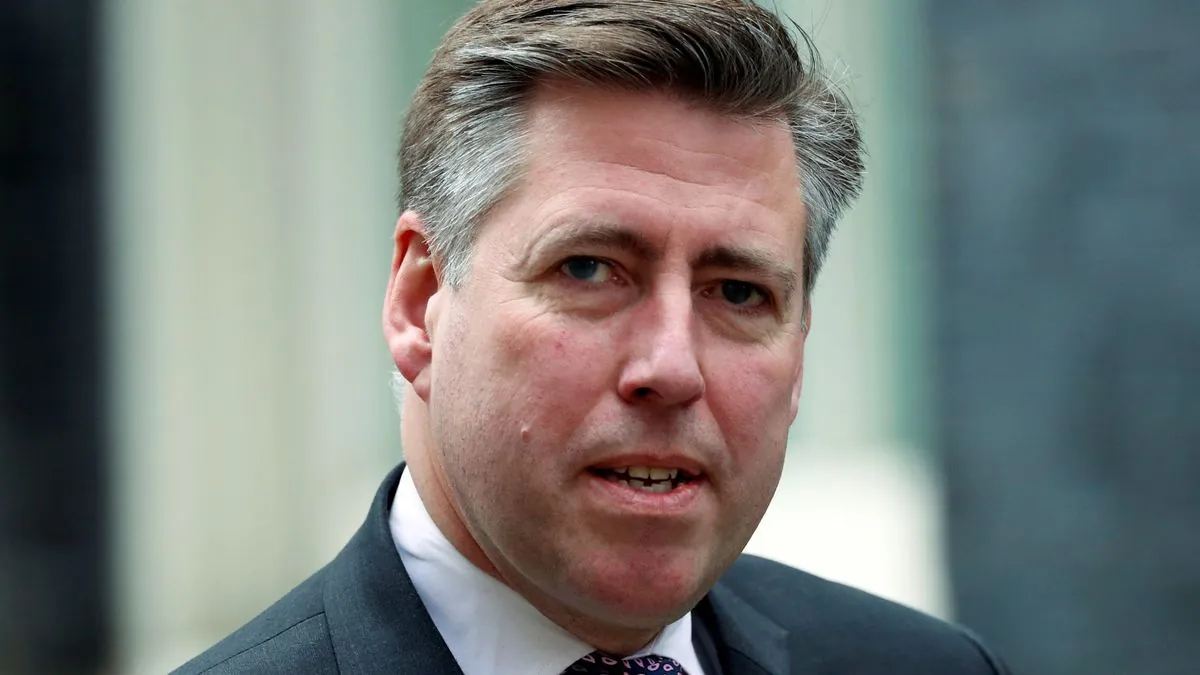Conservative Party Secrets Unveiled in Former 1922 Committee Chair's Memoir
Graham Brady's autobiography exposes backroom tensions and leadership struggles within the Conservative Party over the past decade, revealing insights into prime ministerial departures and policy conflicts.

In a revealing memoir, Graham Brady, former chairman of the influential 1922 Committee, has shed light on the internal workings of the Conservative Party during a tumultuous period in British politics. The autobiography, titled "Kingmaker," offers unprecedented insights into the party's leadership struggles and policy conflicts over the past decade.
Brady's tenure as chairman, spanning from 2010 to 2024, coincided with significant events in UK politics, including Brexit, the COVID-19 pandemic, and multiple leadership changes. His role as the collector of no-confidence letters placed him at the center of several leadership crises.
One of the most striking revelations concerns Rishi Sunak's decision to call an early election. Contrary to speculation, Brady states that only 10 letters of no confidence had been submitted against Sunak, far short of the 53 required to trigger a leadership contest. This disclosure challenges the notion that Sunak was forced into calling an election due to internal party pressure.

The memoir also highlights the tensions during Boris Johnson's premiership, particularly regarding the handling of the COVID-19 pandemic. Brady recounts Johnson's frustration with backbenchers who criticized his adviser, Dominic Cummings, over the controversial Barnard Castle incident. Johnson reportedly used colorful language to express his displeasure, referring to critics as "spineless chicken s---".
Brady's account provides a glimpse into the rapid succession of prime ministers in recent years. He details conversations with Liz Truss during her brief tenure, including the moment he informed her that she had lost the confidence of her party. The book also touches on the departures of Theresa May and David Cameron, offering new perspectives on these pivotal moments in Conservative Party history.
"They would be mad to get rid of a leader who won the biggest Conservative majority since 1987."
The autobiography doesn't shy away from criticizing party leaders. Brady suggests that David Cameron and George Osborne displayed contempt for those from different backgrounds, highlighting the class divisions that have long been a feature of British politics.
These revelations come at a crucial time for the Conservative Party, which has been in power since 2010. The party has faced numerous challenges, including navigating Brexit, managing the COVID-19 response, and addressing economic crises. Brady's insider account provides valuable context for understanding the party's internal dynamics during these pivotal events.
As the UK approaches its next general election, Brady's memoir serves as a reminder of the complex interplay between personality, policy, and party politics that shapes the nation's governance. It also underscores the significant role that backroom negotiations and internal party mechanisms play in determining the course of British politics.


































